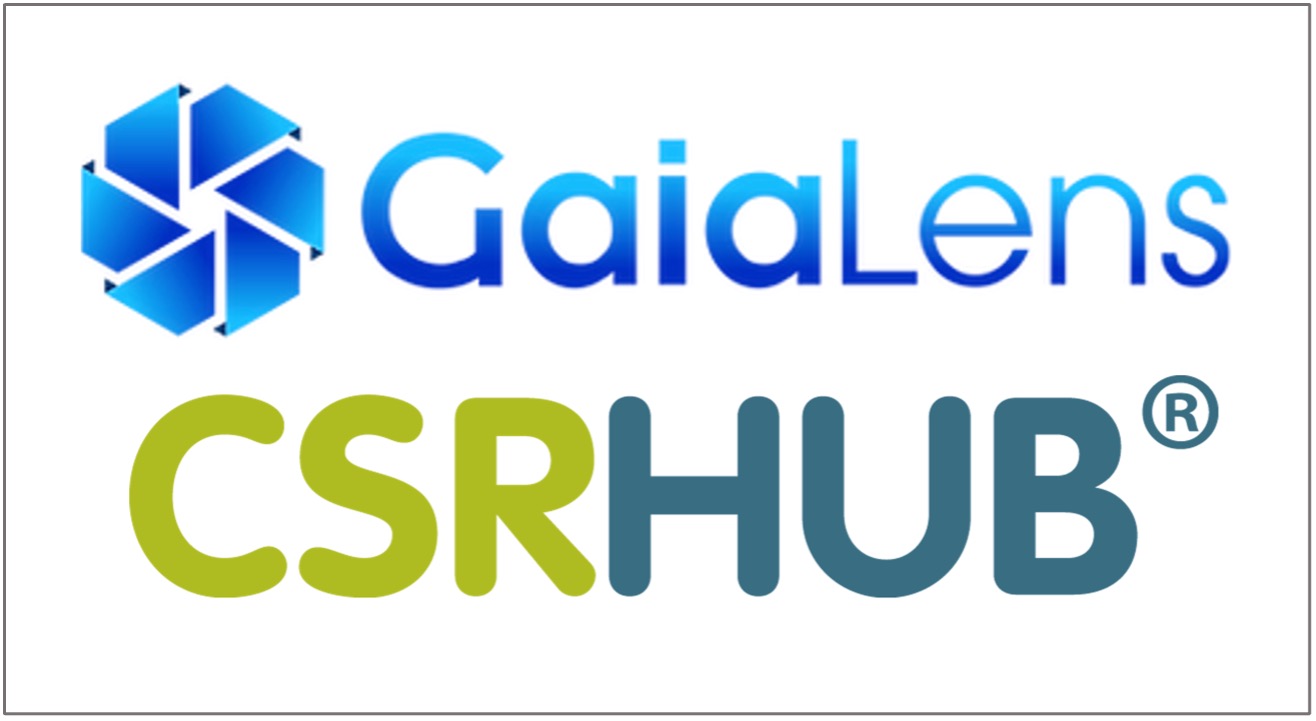CSRHub has recently added data from GaiaLens—a fintech platform that integrates ESG information from both structured and unstructured sources. GaiaLens produces real-time ESG signals on 17,000 public companies to support investment decision-making. Its data complements and helps complete CSRHub’s consensus ESG performance signal—which is used by corporate managers, investors, consultants, and researchers.
During our integration process, we looked at both the similarities and differences between the signals our systems produce. CSRHub’s data set is driven by input from other fintechs, Wall Street analyst groups, NGOs, crowd sources, publications, and government sources. By aggregating this 360 degree view of how companies and other entities perform, CSRHub provides an outside in, stakeholder-driven perspective on ESG performance. It takes time to aggregate the millions of data elements CSRHub receives each month. Since the CSRHub signal lags that of a real time platform such as GaiaLens, we were careful to compare it to the same period of signals CSRHub has developed through its big data process.
We started with a review 10,000 GaiaLens-covered entities. We were pleased to discover that CSRHub had ratings data (generated by its aggregation work with other sources) on 9,992 (99.9%) of these entities. A few of the overlaps had full GaiaLens scores but only partial data within CSRHub’s system. (CSRHub only produces an overall rating when it has enough sources and data elements to estimate a rating at a one point accuracy at a 95% confidence level.) As you can see below, both GaiaLens’ and CSRHub’s data have a central tendency. But, GaiaLens seems to have a left shifted (more negative) view on average than CSRHub (which by design has a distribution that centers near the middle).
GaiaLens offers an overall score that can be compared against CSRHub’s overall rating. The 9% correlation shown below is similar to the correlation CSRHub sees between its consensus viewpoint and the scores of the other major sources it works with. (This correlation level is also similar to the relationship between each of major sources.)
As we’d expect, we see higher correlations when we drill down more deeply into GaiaLens and compare its subfactors to those offered by CSRHub. For instance, the GaiaLens measure of “transparency” for ESG issues shows a 29% correlation with CSRHub’s Environment Transparency & Reporting subcategory rating.
CSRHub has a separate transparency rating in its governance category. This governance-related number shows how transparent an entity is overall on ESG issues. The environment number is just for energy, water, recycling, and other environment-related issues. While the GaiaLens transparency score has a strong connection with CSRHub’s environment-related rating, it has only a 4% correlation with CSRHub’s governance-related rating. This suggests that GaiaLens is most sensitive to disclosure quality and strength in the “E” area of ESG.
We expect to find more interesting connections between the GaiaLens and CSRHub data sets as we expand to include all of GaiaLens’ coverage and data elements in our system. We hope our two user communities will share their insights about how our data sets support one another and help us improve the way in which ESG data is used to generate value.
 Bahar Gidwani is CTO and Co-founder of CSRHub. He has built and run large technology-based businesses for many years. Bahar holds a CFA, worked on Wall Street with Kidder, Peabody, and with McKinsey & Co. Bahar has consulted to a number of major companies and currently serves on the board of several software and Web companies. He has an MBA from Harvard Business School and an undergraduate degree in physics and astronomy. He plays bridge, races sailboats, and is based in New York City.
Bahar Gidwani is CTO and Co-founder of CSRHub. He has built and run large technology-based businesses for many years. Bahar holds a CFA, worked on Wall Street with Kidder, Peabody, and with McKinsey & Co. Bahar has consulted to a number of major companies and currently serves on the board of several software and Web companies. He has an MBA from Harvard Business School and an undergraduate degree in physics and astronomy. He plays bridge, races sailboats, and is based in New York City.
About CSRHub
CSRHub offers one of the world’s broadest and most consistent set of Environment, Social, and Governance (ESG) ratings, covering 50,000 companies. Its Big Data algorithm combines millions of data points on ESG performance from hundreds of sources, including leading ESG analyst raters, to produce consensus scores on all aspects of corporate social responsibility and sustainability. CSRHub ratings can be used to drive corporate, investor and consumer decisions. For more information, visit www.CSRHub.com. CSRHub is a B Corporation.



